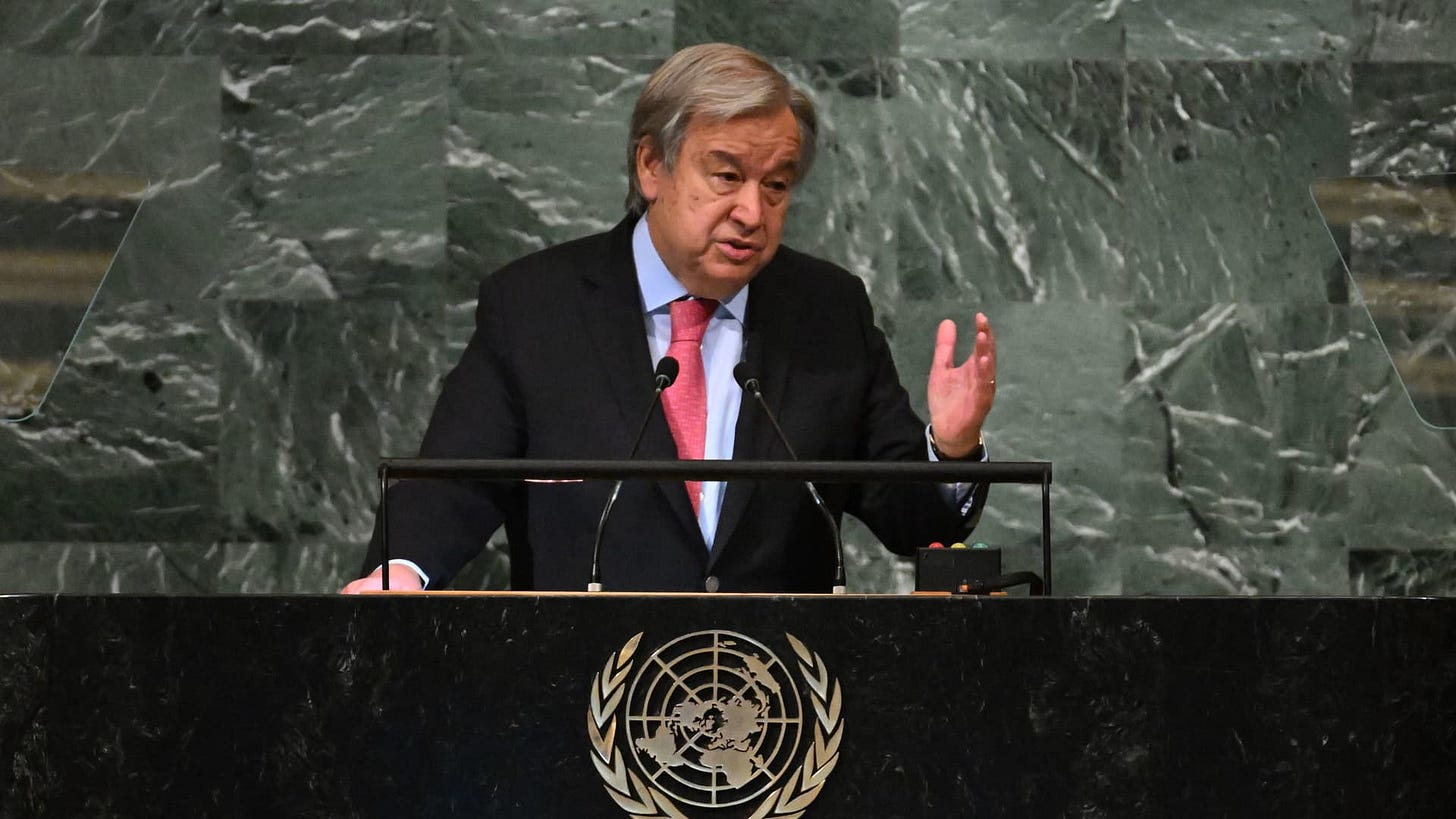Impotent in the Face of Crises, What Can Be the Future of the UN?
The legitimacy of the UN continues to sink.
Just one week before the opening of the UN's September meeting in New York, the General Assembly decided to postpone by one year a "Summit of the Future" scheduled for 2023. The event went almost unnoticed, while this summit was supposed to bring “multilateral solutions for a better tomorrow.”
Faced with the current ills of the planet, the future could w…
Keep reading with a 7-day free trial
Subscribe to Sylvain Saurel’s Newsletter to keep reading this post and get 7 days of free access to the full post archives.




